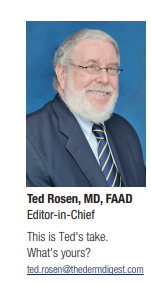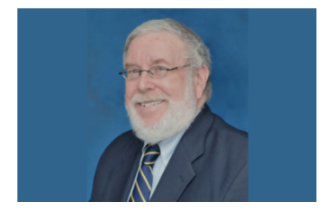“For life and death are one, even as the river and the sea are one.” —Kahil Gibran

Very few people enjoy the thought of contemplating their own mortality. And yet, I was recently forced to confront Dr. Doom himself when I became a statistic. I dutifully received my COIVD-19 vaccinations, wore personal protective gear (including an authentic 3M N-95 mask) while seeing every patient, and utilized hand sanitizer like it was water. I didn’t travel and didn’t so much as go out to dinner (indoors or outdoors) for a year and a half. And yet, I contracted a so-called “breakthrough” COVID-19 infection, almost certainly due to the now dominant Delta strain.
Of course, the occupational health and infection control officials at my two places of employment were eager to know if I could produce any insight into the source of my infection. My answer was terse: “Hell, no.” I did everything right. I took every precaution. I famously “followed the science.” I still got sick.
And how sick did I get? Let’s just say when your pulse oxygen saturation hits 81% and you no longer know your own identity, you are clearly ill. When you are gasping for breath, you are clearly ill. When your temperature hits 103.80 F, you are clearly ill. When your admission from the emergency department to the COVID ward takes less than 20 minutes, you are clearly ill. I was the sickest I have ever been. And I also knew that by being older, obese (I’m sadly admitting that!), and a diabetic, my prognosis was less than ideal. So, there I was: involuntarily staring Dr. Doom directly in the face. That moment of realization that life itself might cease was not a pleasant one.

Now the good news was—and is—that I am privileged to live in the greatest country on the face of the earth; a country that supremely prizes human life and will go to extraordinary lengths to preserve and protect it. I also had the singular advantage of the availability of modern technology and therapeutic interventions to be had in a major medical center. Monoclonal antibodies, the antiviral remdesivir, intravenous dexamethasone, and the JAK inhibitor baricitinib were all administered, along with oxygen supplementation, meticulous pulmonary care, and proper metabolic and nutritional care. I survived to recuperate at home, which is where I am writing this from now. It might be a few weeks, or it might be a few months, but I am determined to recover from this and return to my former self.
Although this journey has been unpleasant, I thought I might share a few lessons learned and observations made along the way. I am old enough, and some of you may be as well, to remember a time that when you were hospitalized, that event was quarterbacked by your family physician or personal internist, the individual who knew you and your medical history best. Such is no longer routinely the case, at least not in my medical center. Here, the inpatient care is immediately turned over to a “hospitalist,” who does not know you at all. I suppose the rationale is to place the sickest patients in the care of those specifically trained to deal with critical medical and logistical issues. In fact, multiple studies show that hospitalist care increases efficiency, leads to shorter hospital stays, and generally improves outcomes. Still, when patients are at their most vulnerable, it can be disconcerting to trust in someone randomly assigned to the case based upon a rotation schedule. Also, care delivered by a hospitalist “stranger” may lack the understanding and nuances developed over years of interaction between patients and their chosen primary care providers.
Secondly, I found that, despite a surfeit of technical proficiency, empathy seemed to be sadly lacking. When I arrived on the COVID unit to meet my assigned hospitalist, I asked him straight out, “Do you think I might die from this?” Maybe that seems like a tremendously gruesome question. But if it is directly asked, it deserves an answer. However, my hospitalist’s answer was terribly un-reassuring, “We will see.” Really? That’s the best he could do? I can think of dozens of alternative answers that might have been given. It’s one thing to be dispassionate and objective, and then another to be completely obtuse. I believe that the lack of a prior relationship between the hospitalist and the patient (myself in this case) facilitates a lack of empathy. The hospitalist demonstrated neither cognitive nor emotional empathy, nor an ability to offer empathetic concern (sense what the patient needs in the way of reassurance).
Keep these two lessons in mind when dealing with our dermatologic patients. If you seek consultation with other specialists, try to select those who can make a new patient feel keenly appreciated and warmly welcomed. Try to find a network of referral providers who remain friendly and empathetic, even though you might be enlisting assistance based solely a technical skill (from a Mohs surgeon or radiotherapist, for example). Ask your patients about their experiences with other physicians with whom you routinely consult. Such consideration shows that you care a lot about those who entrust their care to you.
Finally, do whatever you can to dodge the COVID-19 bullet! Believe me when I say that you don’t want or need to experience this particular illness. And should you become ill, expeditiously seek evaluation. Time may be of the essence!
“[C]are delivered by a hospitalist ‘stranger’ may lack the understanding and nuances developed over years of interaction between patients and their chosen primary care providers.”
If you seek consultation with other specialists, try to select those who can make a new patient feel keenly appreciated and warmly welcomed.



